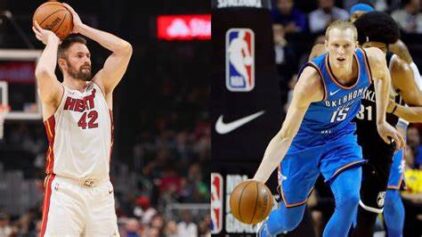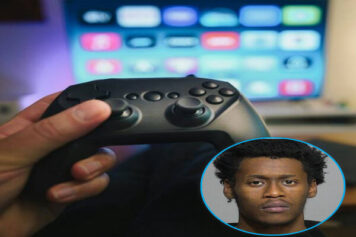Royce White has not been with the Rockets in two weeks, and it is unclear if or when NBA fans will ever see the No. 16 overall pick from this year’s draft play professional basketball. Rather than being labeled a bust, which would suggest he’s played enough hoop to draw such a conclusion, White is considered a waste of a first-round pick in some circles because of a mental illness that’s always going to shadow him and any team he plays for.
It’s not just that the rookie suffers from a generalized anxiety disorde – the fact that he’s outspoken and even brazen about what he believes constitutes fair treatment for an employee with mental illness could easily steer NBA teams away from putting in the time or effort required to make a business relationship work.
Here’s the question the basketball world is asking, and might never get a definitive answer to: Is Royce White worth the risk? But what seems to be a far more compelling inquiry is whether pursuing an NBA career was worth the health risk for Royce White.
While anyone with compassion can feel for White, it’s fair to wonder if this NBA thing was a good idea for the 21-year-old from Minnesota. He’s been public about fearing conditioning drills at times when his heart races faster than normal, which traces back to his childhood when he watched a friend collapse on the court.
So much has been made of White’s fear of flying, how difficult it would be for him to travel the busiest road trips without getting on a plane. But what about once he’s finally in the game and it’s the fourth quarter with two minutes to go and the score is tied? The type of illness White is dealing with makes it reasonable to question if playing in overtime, or taking a big shot down the stretch is putting him in an unsafe work environment.
White didn’t play an overtime game in college and only five of Iowa State’s games last season were decided by five points or fewer. Before that, he dominated high school competition in the Twin Cities.
The NBA, if he ever plays in it again, is going to require more of White’s mental toughness than any level of competition he’s encountered.
**********
The Rockets look like a low-seed playoff team at best this season, with or without White, and it’s been that way for the better part of the last 15 years in H-town.
White’s success could complete a powerful nucleus for the Rockets, a squad that’s just one more star player away from being for real. But with White, we’re not talking about a big time player who shies away from pressure situations, rather one who could collapse mentally and emotionally under such conditions.
Pressure is the essence of White’s job, and at the same time it’s his Achilles Heel as a human being. How does this dichotomy lend potential for a successful NBA career?
"I'm never at 100 percent because my anxiety is going to take me down 25 percent before the game starts," White told ESPN.com earlier this year. "Before the game, I'm still feeling sick to my stomach because I want us to win so bad that my adrenaline is getting going before the game even starts. It's hard to do it in front of 20,000 people. But I've trained my mind to deal with it."
Twenty-five percent down before in-game scenarios factor into the equation is more than most NBA teams are willing to concede for a player who might be too anxious to run every now and then. More importantly, who performs well on a job without being more than 75 percent mentally on a given night, and how is that safe?
On the court, White draws comparisons ranging from Antoine Walker to LeBron James. He’s not the shooter Walker was and perhaps there isn’t an athlete quite like LBJ, but the rookie is a do-it-all kind of player on offense. Unfortunately for White, the Rockets and any team he ever plays for, what he’s missing could be everything.
**********
Anyone who follows White on Twitter has probably gathered that the 6’8, 260-pound hybrid forward feels empowered by the social media platform. He’s used Twitter to drive home his point about transparency and consistency in dealing with mentally ill employees, and to criticize those he perceives to be insensitive and lacking a certain understanding of the struggle.
He’s called out the Rockets organization, media, and popularized the #AnxietyTroopers hashtag. All of it is a part of his advocacy, an effort to break the perceived silence, lessen the stigma and push for transparency.
Not everyone understands why he won’t just “shut up and play,” be satisfied with the rare opportunity to make millions of dollars to play a sport, or as Fudge from Higher Learning would say with disapproval, “run, ni&&a run.”
Maybe White turning pro was more about advocacy than basketball. Just as it ought to, White’s mental health appears to mean way more to him than making it rain or validating his spot in the 2012 NBA Draft. There’s still some lessons this dude is going to have to learn the hard way.
How "good" you do your job, should NEVER determine whether or not you have conditions are safe. That is STANDARD for the WHOLE workforce.
— Royce White (@Highway_30) November 25, 2012
How well someone does their job usually determines whether or not they get hired and keep the job in the first place, much less how safe it is. Rockets general manager Daryl Morey has been mostly quiet on the topic for a while, but he did say last week that the goal was to get him back to “a standard operating place as a player.”
So while the rookie stands up for his rights and encourages the world to do the same, it helps to understand that the right side of the argument cannot save you from the reality. And the reality is that not all #AnxietyTroopers can make it in the NBA, which might not be a bad thing for Royce White.



